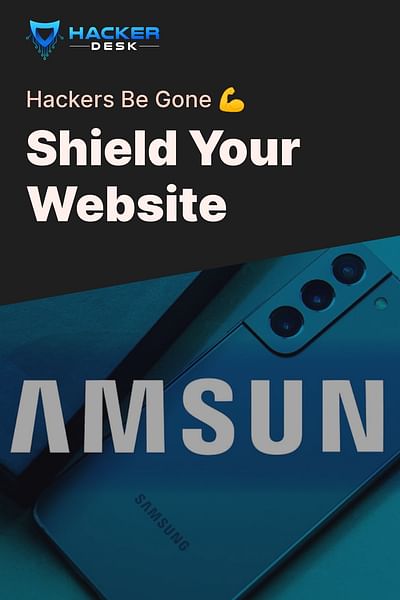Rhett Rowe is a seasoned expert in cybersecurity, boasting over 15 years of professional experience in the industry. He has collaborated with numerous Fortune 500 companies, aiding them in fortifying their digital infrastructures. Rhett is a Certified Ethical Hacker (CEH) and has earned his Master's degree in Information Security from Stanford University.
Hey there!
I understand your concern about keeping your website safe from hackers who might try to inject malicious code. It's a valid worry, but don't worry, I've got you covered. Let's dive into some effective measures you can take to prevent code injection attacks and keep your website secure.
1. Input Validation: One of the most crucial steps in preventing code injection is validating user input. Always validate and sanitize any data that comes from user inputs, such as forms or URLs. This ensures that only expected and safe data is accepted, minimizing the risk of code injection.
Input Validation Techniques for Preventing Code Injection
| Technique | Description | Example | Effectiveness |
|---|---|---|---|
| Whitelist Validation | Only accept pre-approved input | If a form only accepts numbers, reject any input containing letters or special characters | Highly effective, but can be restrictive |
| Length Check | Limit the length of input to prevent excessive data | If a username field has a limit of 20 characters, reject any input longer than this | Effective, but does not prevent all types of code injection |
| Data Type Check | Ensure the input matches the expected data type | If a form expects an integer, reject any input that is not an integer | Effective, but can be bypassed with clever coding |
| Special Character Check | Reject input containing special characters | If a form does not expect special characters, reject any input containing them | Effective, but can be bypassed if the application uses special characters |
| Encoding | Encode user input to neutralize potentially harmful characters | Convert '<' and '>' to '<' and '>' to prevent HTML injection | Effective, but can be bypassed if the encoding is not done properly |
2. Use Parameterized Queries: When interacting with databases, make use of parameterized queries or prepared statements. These techniques ensure that user-supplied data is treated as data and not as part of the SQL query itself. By separating data from code, you can prevent SQL injection attacks.
3. Secure Coding Practices: Following secure coding practices is essential. Avoid using functions or methods that allow direct execution of code from user inputs. Be cautious with functions like eval() or exec(), as they can be exploited by hackers to inject malicious code.
4. Regular Updates and Patches: Keep your website's software, plugins, and frameworks up to date. Developers often release updates to fix security vulnerabilities. By staying current with these updates, you ensure that known vulnerabilities are patched, reducing the risk of code injection attacks.
Effectiveness of Web Application Firewall
5. Web Application Firewall (WAF): Implementing a WAF can provide an additional layer of protection. A WAF analyzes incoming traffic to your website and filters out malicious requests, including code injection attempts. It acts as a shield, blocking potential attacks before they reach your website.
6. User Privileges and Access Control: Limit user privileges to only what is necessary. Ensure that users have the least amount of access required to perform their tasks. This prevents attackers from gaining elevated privileges and executing code injection attacks.
7. Regular Security Audits and Penetration Testing: Conduct regular security audits and penetration tests to identify vulnerabilities in your website. These tests simulate real-world attacks and help you discover and fix any weaknesses before hackers can exploit them.
Remember, cybersecurity is an ongoing process. Stay vigilant, keep yourself updated with the latest security practices, and consider consulting with a cybersecurity professional to ensure your website is well-protected.
By following these tips, you'll be well on your way to preventing code injection attacks and keeping your website secure in the digital world.
Stay safe and secure!
Ethan Cipher















